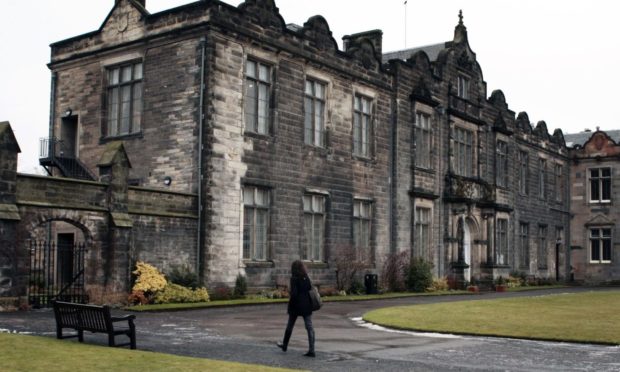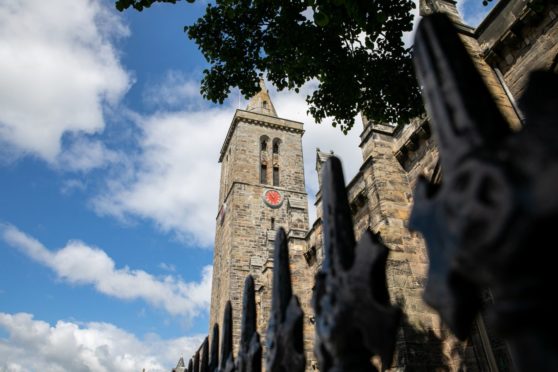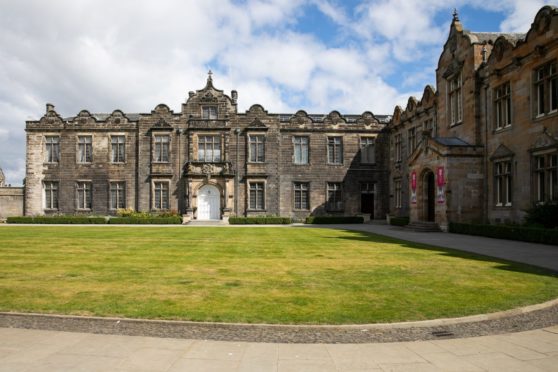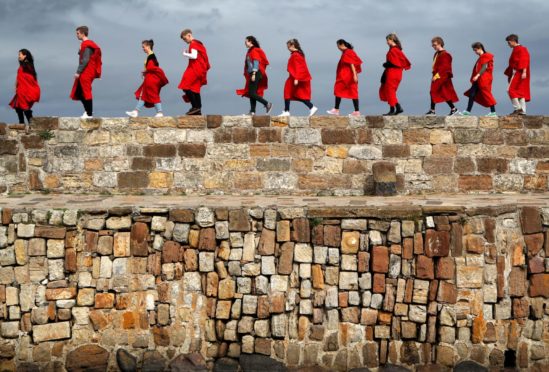A specialist sexual assault counsellor will be hired by the University of St Andrews after it was rocked by a series of claims of campus ‘rape culture’ last year.
The new post will be supported by Fife Rape and Sexual Assault Centre to support students who report allegations of sexual assault and harassment.
It comes after dozens of survivors spoke out about their experience of sexual violence on campus during their time at the Fife university.
It was previously revealed that some 47 cases of sexual assault and harassment have been recorded by the university in the last four years.
Announcing the new post, which will see someone based on campus 3.5 days each week, a university spokesperson said it would allow students to access expert support.
“The new position, which will be based on campus 3.5 days per week, will allow students the flexibility to seek support from the university counselling team, and the expertise of the Frasac sexual violence counselling specialist.
“Our student counsellors are trained by Rape Crisis Scotland, and our counselling and wellbeing service is accredited by the Royal College of Psychiatrists and the British Psychological Society.
“Universities now face the immense challenge of simultaneously educating students about consent, while creating an environment in which they can come forward to disclose sexual violence, and know that they will be listened to, supported, and looked after,” they told one newspaper.
Survivors reveal experiences of ‘rape culture’ at St Andrews University
St Andrews University bosses have previously rejected claims that reports of rape and sexual assault were poorly handled.
In a recent BBC documentary, two former St Andrews students accused the university of making mistakes in the handling of their complaints as they revealed their experiences.
One student featured in the documentary, known as “Megan”, told how she decided not to proceed with her complaints after being asked questions she thought were accusatory or victim blaming.
“She asked how much alcohol I had last night and just when I stated what had happened I felt that her response was pretty hopeless sounding.
University accused of mishandling complaints
“The woman that I was working with is not to blame, it’s just a very bureaucratic system,” Megan told the BBC’s Disclosure programme.
But the University of St Andrews claimed there was “documentary proof” the claims are “without foundation”.
The university accused the BBC programme of ‘selective reporting’, with a spokesperson saying: “We categorically refute the allegations of ‘poor handling’ made by the BBC and have documentary proof that they are without foundation.
The BBC dismissed the testimony of a rape survivor who wished to talk positively about university support, and ignored others who expressed a similar view.
“We also know the BBC dismissed the testimony of a rape survivor who wished to talk positively about university support, and ignored others who expressed a similar view.”
They added: “We will continue to work with our students to understand what may be missing in the application of policy and safeguards, and to create an environment in which all survivors trust and believe that we care deeply.”
Several of the claims which surfaced over the last year were made against members of the Alpha Epsilon Pi society.
Alpha Epsilon Pi society
The worldwide society found in the 1900s in New York has a chapter of around 50 men who are members in St Andrews.
The St Andrews chapter of AEPi introduced “mandatory consent education” for those joining as a result of allegations involving the fraternity.
It was forced to suspend a number of its members following the allegations but faced pressure to report those cases to the police for an independent investigation.
A spokesperson for the St Andrews Survivors group said previously a discussion about campus ‘rape culture’ was needed across the UK.
They said: “Though there has been much attention given to the US, the problems of toxic masculinity, lack of consent understanding and ‘lad’ culture is still very much present, and dangerous, here.
“Beyond that, the attitude towards survivors…needs to improve. We need to work towards a more empathetic and less shaming stance towards survivors.”
The spokesperson said sexual violence was “deep rooted” across universities, adding: “We as students are often less than six degrees of separation from sexual violence.”



